MDRS 109 Crew Member Bios
Dec 12th, 2011 | By Leandro | Category: Aerospace, Mars Desert Research StationI am very excited to introduce the the MDRS Crew 109. This crew will be doing a Mars analog simulation from Dec 17-Jan 1 at the MDRS site in the middle of the desert near Hanksville, Utah. Here is our line up:
 Nicky De Munster, Commander
Nicky De Munster, Commander
Nicky De Munster is currently an ICT teacher at CVO Waregem, Belgium. He is 50 years old, married to Katharina and has one daughter Anke. He is very grateful with the support of his family concerning his space activities. At the age of eight, Nicky observed the first landing on the moon, sitting in front of a tiny black and white television screen. This turned out to be the first step towards a profound space and science interest. He is a member of and space teacher for the Euro Space Society, which has Dirk Frimout as chairman, i.e. Belgian’s first astronaut. Nicky organizes space lectures and space activities in primary and secondary schools, as his main goal is to promote space, science and technology to young children, the astronauts and scientists of the future. He is also a member of the Belgian Astronomical Association and writes for the Belgian space magazine “Heelal”. Presently, Nicky is taking part in a project named “With your class to Mars”, organized by the University of Antwerp and the teacher training center CNO. To promote space, he build up quite some experience by means of space visits, activities and experiments. First of all, in 2002, he got the opportunity to visit Belgian astronaut Frank De Winne during his training in Star City, Russia. Sitting in a Russian Soyuz capsule was a dream that came true. Two years later, thanks to ESA, he could participate in a parabolic flight with Airbus A300 ZERO-G at Bordeaux, in which he experienced 31 parabolas. During this flight, he was a subject for a medical experiment called ‘Cardiocog’, executed by the University of Leuven, Belgium. This experiment was the same one that Belgian astronaut Frank De Winne had previously done at the International Space Station ISS. Thirdly, in 2006, he could take part in an experiment with the ESA centrifuge at the University of Antwerp and in a second part of the Cardiocog Stress experiment at the University of Leuven. Another example is that, in 2008, he was selected to represent Belgium at the International Space Camp in Huntsville, Alabama, where he could share this experience with 50 American ‘teachers of the year’ and 21 international teachers. In 2010 he was the crew engineer of MDRS90. Finally, in April 2011, he managed to visit the Mars500 project at Moscow. Overall, he met more than one hundred astronauts, including 8 moonwalkers.
In his free time, besides organizing space lectures and activities, Nicky enjoys astronomy, gliding, reading and cooking. Onboard MDRS, Nicky will execute several school-based experiments and will serve as general supportive crewmember. As commander of crew MDRS109 and with the support of his teammates, he hopes to accomplish his mission successfully and looks forward to share his experience with Belgian children and students.
 David Weiss, Geologist/Executive Officer
David Weiss, Geologist/Executive Officer
David Kutai Weiss is currently a senior and member of the class of 2012 at the College of Charleston. David is a geology major with a passion in planetary geology and future human missions to Mars. He began his interest in planetary geology by participating in two academic NASA space mission design competitions involving the College of Charleston and several other participating U.S. and international universities. His passion for spaceflight took off when he was able to present his mission proposals before a review panel at NASA Marshall Space Flight Center. This past summer, he conducted research at the NASA Goddard Space Flight Center Solar System Exploration Division in the Lunar and Planetary Science Academy. His research at Goddard involved modeling the thermodynamic evolution of flood basalts on Mars using HiRISE imagery from the Mars Reconnaissance Orbiter with implications for Martian paleoclimate. David’s current research includes modeling crustal delamination, and he is using finite element analysis software to answer the question of whether Large Igneous Provinces and continental uplift can be answered through brittle extensional sub-lithospheric processes. David also enjoys spreading his passion for space science, and co-teaches professional development courses on planetary science for elementary through high school teachers through the South Carolina Space Grant Consortium. Onboard MDRS, David will use ArcGIS, ASTER satellite data, coring, cone penetrometer, and a rover to create a map detailing potential rover routes for exploration and water acquisition based on hydrous mineral locations with absorption minima at 2.2 ?m, soil strength, soil water content, and terrain gradient.
In his free time, David enjoys rock climbing, bouldering, caving, white water rafting, sea kayaking, wilderness backpacking, reading, sailing, and designing and building longboards. He also enjoys boxing, wrestling, taekwando, and Jiu Jitsu, and is the founder, vice president, and assistant coach of the College of Charleston Martial Arts Club. After he graduates from the College of Charleston in May, David hopes to participate in a Ph.D program starting in the fall of 2012, with a research focus in planetary geophysics and geodynamics. His ultimate goal is to become an astronaut and travel to Mars and beyond.
 Leandro G. Barajas, Chief Engineer/Robotics Specialist
Leandro G. Barajas, Chief Engineer/Robotics Specialist
Leandro Giovanni Barajas, Ph.D., PMP is a Staff Researcher with the Advanced Robotics Group at General Motors Global R&D. He is currently focusing his research on the areas of safe human-robot interaction, robot task learning, dexterous end-effectors, and intelligent perception. For the last few years he has been part of the interdisciplinary GM-NASA team developing the humanoid dexterous robot, Robonaut 2 (R2). R2 was designed to be a robotic assistant that can work alongside humans, whether they are astronauts in space or workers at GM manufacturing plants on Earth. R2 was launched up to the International Space Station (ISS) on 2/24/2011 as part of the STS-133 mission, fulfilling a 15 year dream to put a humanoid robot into space. As recognition for his contributions to R2, he has received the Federal Laboratory Consortium (FLC) Award for Excellence in Technology Transfer, the NASA Exceptional Space Act Award, and the NASA Johnson Space Center’s Exceptional Software Award.
Leandro will be the Chief Engineer and Robotics Specialist of the MDRS Crew 109. He will responsible for maintaining all systems necessary for routine Habitat operations including power, water, electrical, plumbing, ATV, and Green Habitat systems. He will also work with the remote engineering team to ensure safe and functional operations of the mission.
Leandro received an Honors degree in Electronics Engineering as Valedictorian from the Universidad Distrital F.J.C., Bogotá, Colombia, in 1998, and the M.S. and Ph.D. degrees in Electrical and Computer Engineering from the Georgia Institute of Technology (Georgia Tech), Atlanta, GA in 2000 and 2003, respectively. During his graduate studies, he developed and patented novel surface mount technology manufacturing control methodologies at Georgia Tech’s Manufacturing Research Center. Leandro has been distinguished with over 40 corporate, academic and professional awards. He is also the author of over 50 technical publications, as well as more than 30 patents & patent applications.
Leandro is also a certified Project Manager Professional (PMP) and a Project Management Institute (PMI) member. He is a IEEE Senior Member, a SME Senior Member, a SAE International Member and an Elected Full Member & GM Chapter Past President of SIGMA XI (The Scientific Research Society). In addition, he has been a dedicated FIRST Robotics Competition mentor for the Rochester High School/GM R&D team (FEDS 201) for last 8 years. Leandro is a certified YMCA-PADI Open Water II SCUBA Diver and a FAA licensed Private Pilot (ASEL, HP) currently flying Cessna 172s & 182s and Columbia 350s.
 Aster Stein, Journalist/ Education Officer
Aster Stein, Journalist/ Education Officer
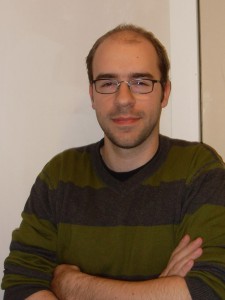
From an early age on, Aster Stein has been very interested in manned spaceflight. Between the ages of 16 and 27, he worked regularly as guide and space camp councellor at the Euro Space Center in Transinne, Belgium. This was a perfect combination between his passion for youth work and space education. At this time, he is spreading the word about science and technology as an edutainer at Technopolis, Belgium’s biggest hands-on science center.
Aster holds a Master’s degree in Communication Science and a teaching degree from the Vrije Universiteit Brussel. One of his mission goals is sharing his personal and scientific adventures on board MDRS 109 with as many people as possible. This will be accomplished by creating a set of educational materials and doing outreach projects. For this mission he was designated as Journalist. He will also serve as general support crewmember, helping the other crew members with scientific experiments and day to day activities. In his free time, Aster enjoys scuba diving, skiing, geocaching, gaming, watching movies, cooking and traveling a lot.
 Karon Wynne, Health & Safety Officer/Biologist
Karon Wynne, Health & Safety Officer/Biologist
Karon Wynne is currently pursuing her Ph.D. in Neuroscience and Masters in Public Health at the University of Texas Medical Branch. As a Ph.D. candidate her research is focused on the development of novel technology for both the diagnostics and treatment of traumatic brain injury. Karon also works at NASA Johnson Space Center developing a countermeasure for radiation induced cellular damage. She was recently awarded a scholarship by the Texas Space Grant Consortium. Since beginning at UTMB in 2010, she has served as treasurer for the Galveston Chapter of the Society for Neuroscience, Student Government Association Senator, as well as Vice President and Community Service Coordinator for the Public Health Organization.
Karon received a bachelor’s degree in Mathematics from West Virginia University. At WVU, Karon was awarded a university scholarship, the Mickey Leland Energy Fellowship and was a member of the Honors College. After graduating from WVU, Karon worked for the U.S. Department of Energy at the National Energy Technology Laboratory and Argonne National Laboratory developing alternative energy technology. She has also interned at Lawrence Livermore National Laboratory, where her research was focused on the use of microfluidics for pathogen identification in the event of biological warfare.
As part of MDRS Crew 109, Karon will serve as the Health and Safety Officer (HSO) as well as assisting in the Crew Biologist role. As HSO she will be responsible for crew health and telemedicine sessions with the Flight Surgeon. Karon is also planning to run a study that correlates environmental factors at MDRS with team morale.
Karon plans to obtain an M.D. as well as a Ph.D. and specialize in surgery or anesthesiology. She hopes to work to improve patient safety, developing novel medical technology for critical care monitoring and traumatic brain injury.
 Victoria Grudzinski, Biologist
Victoria Grudzinski, Biologist
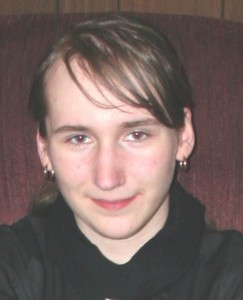 Victoria Grudzinski was salutatorian of her graduating class at Rome Catholic School. While there, she was a member of the National Honors Society and the Principals List. She was awarded the President’s Education Awards Program, Outstanding Academic Excellence Award 2009 and the Rome Academy of Sciences, 2009 Science Award, for Mathematics and Science. She tutored elementary and high school students during her junior and senior year in high school. Victoria is currently a junior of the class of 2013 at Wells College in the Finger Lakes region of central New York. Victoria is currently a biology major with plans on pursuing a graduate degree in astrobiology. In this way, she is pursuing her interest of wildlife along with a future goal of being a part of human missions to Mars. She developed her interest in biology during family vacations, visiting her mother’s family’s farm(s) in Poland. She has done volunteer work at the Humane Society of Rome. Her interest in Mars comes from her interest in space exploration and establishing a permanent human presence off the planet Earth.
Victoria Grudzinski was salutatorian of her graduating class at Rome Catholic School. While there, she was a member of the National Honors Society and the Principals List. She was awarded the President’s Education Awards Program, Outstanding Academic Excellence Award 2009 and the Rome Academy of Sciences, 2009 Science Award, for Mathematics and Science. She tutored elementary and high school students during her junior and senior year in high school. Victoria is currently a junior of the class of 2013 at Wells College in the Finger Lakes region of central New York. Victoria is currently a biology major with plans on pursuing a graduate degree in astrobiology. In this way, she is pursuing her interest of wildlife along with a future goal of being a part of human missions to Mars. She developed her interest in biology during family vacations, visiting her mother’s family’s farm(s) in Poland. She has done volunteer work at the Humane Society of Rome. Her interest in Mars comes from her interest in space exploration and establishing a permanent human presence off the planet Earth.
As the Crew Biologist, she has prime responsibility for developing the biology goals for the mission. Based on these science goals, field EVAs are planned and subsequent laboratory analysis is performed to achieve these objectives. Collection of biological/geological samples will be done using sterile protocol, using a penetrometer, and testing a portion of these samples will take place in the MDRS laboratory. Packaging and sending out the remaining portion of these samples will occur at the end of the rotation. The Crew Biologist documents all work and findings to report to Mission Support each evening.
To relax, Victoria enjoys listening to music, photography, drawing, writing, and traveling with her family. After graduating from the Wells College in 2013, she will be pursuing graduate work in astrobiology to obtain a Master’s Degree in the field. Her goal is to pursue a career that will explore how life survives in various environments; and how humans can survive while exploring space. Her ultimate goal is to explore how human life can survive on Mars.
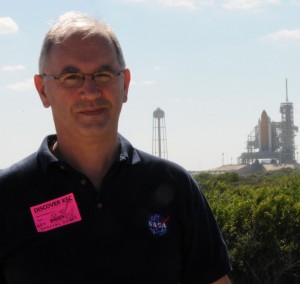
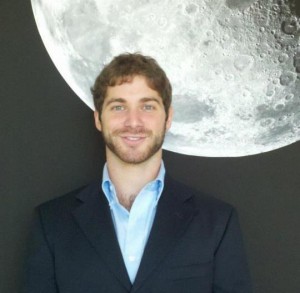
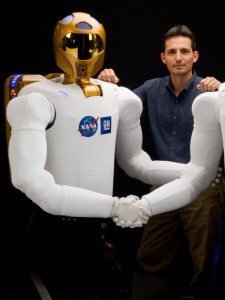
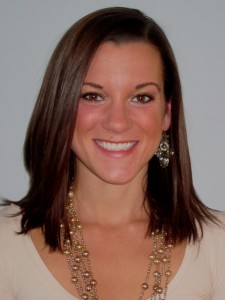
 Facebook Profile
Facebook Profile ORCID Profile
ORCID Profile